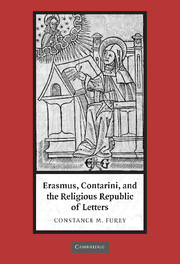2 - Creating an Alternative Community
Published online by Cambridge University Press: 10 December 2009
Summary
In 1536, reginald pole (1500–1558) denounced his generous patron Henry VIII. Pole, the younger son of the king's cousin, had received stipends from Henry since 1512 and a regular annual income of £100 since 1521. His letter of 1536 condemning Henry's divorce had one immediate effect: The king stopped sending him money. Pole was probably not surprised. Patronage always entails reciprocity, and if cutting off funds seems to be a particularly crass acknowledgment that patrons expect quid pro quo, it also seems to go right to the heart of the matter. Pole wrote the letter (later published and known conventionally as De unitate or the Defense of the Unity of the Church) because the king had asked for it, and the respectful request – conveyed by an intermediary – explicitly reminded Pole that he owed the king something because all of his knowledge and learning had been obtained “by the goodness of God and his grace's liberality.” Pole readily acknowledged this debt. He began the letter by calling Henry the “patron (fautor) of my studies,” and he described himself as a faithful subject and a suitably grateful client. “In pursuit of my own literary studies, I have been in search of precious wares… and have spent a large portion of my life in foreign lands. Whatever benefits (fructus), then, I may have derived from my studies in literature is in all justice entirely at your disposal, for I gained them solely through your generosity.”
- Type
- Chapter
- Information
- Publisher: Cambridge University PressPrint publication year: 2005



